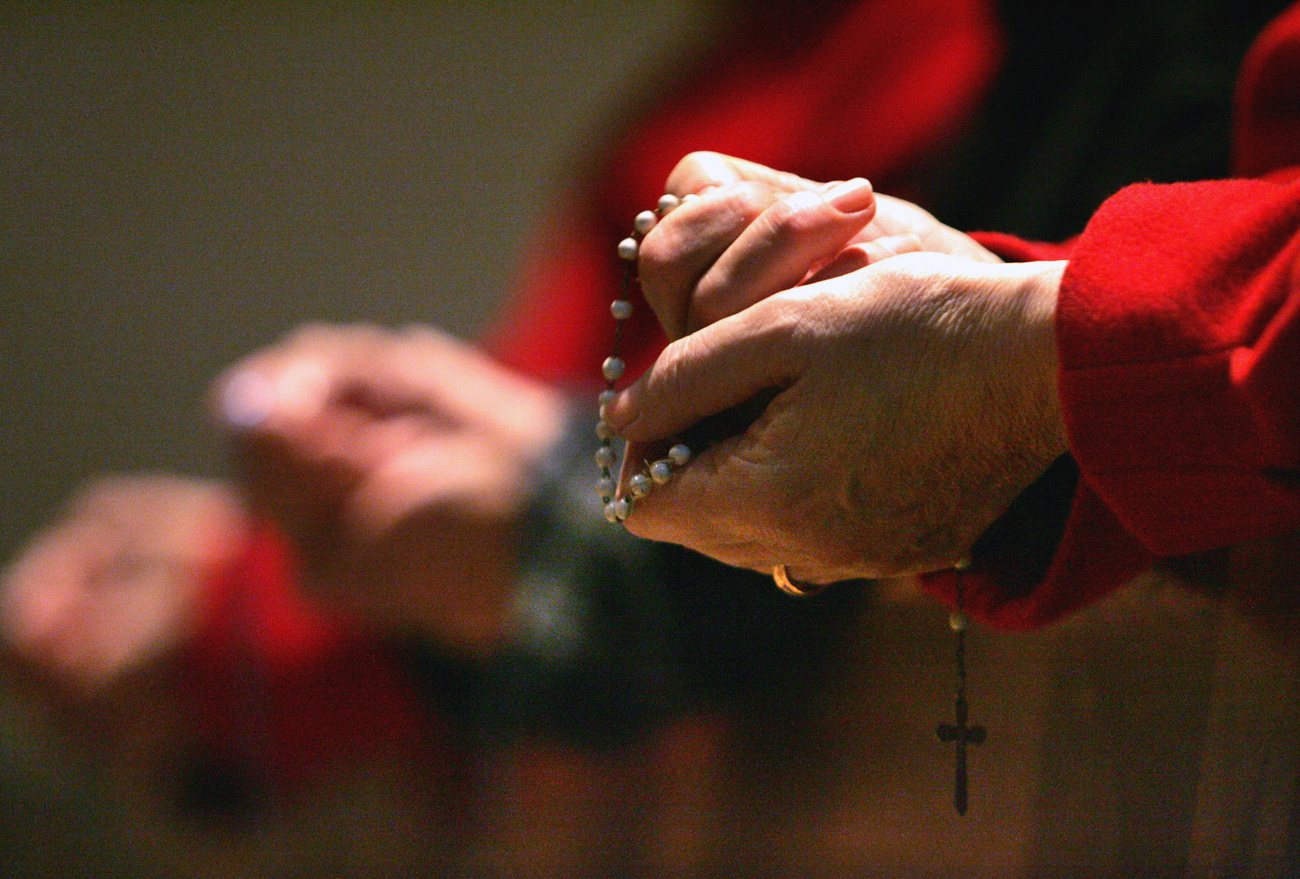
‘It’s time to abolish celibacy,’ says president of Swiss Bishops’ Conference

The president of the Swiss Bishops' Conference admits mistakes in dealing with abuse cases in the Catholic Church and advocates for the abolition of celibacy and the admission of women to the priesthood.
In an interview with the Neue Zürcher Zeitung (NZZ) am SonntagExternal link, Bishop Felix Gmür also said that the Catholic Church has been active in the topic of abuse cases for a long time.
The prevailing conditions must be questioned, the Swiss Bishops’ Conference president explains. In his view, the time is ripe to abolish celibacy and to allow women access to the priesthood.

More
What next after Swiss Catholic Church sexual abuse revelations?
At the beginning of his time as bishop, Gmür emphasised the legally correct conduct in cases of abuse, he said in the interview with NZZ am Sonntag. The victim’s perspective had been neglected in the process. “In this respect, I have changed my perspective over time”.
Gmür is in favour of an external monitoring of the church investigation into the cases of abuse, as demanded by the Roman Catholic Central Conference.
On September 12, the University of Zurich published a study that estimates there have been at least 1,002 cases of sexual abuse by Catholic clergy since 1950. According to the researchers, this is only the tip of the iceberg, as most of the cases were not reported and the documents destroyed.
Better distribution of power
In general, power in the Church must be better distributed, Gmür said. “I will lobby in Rome for the Church to decentralise.” A new sexual morality is needed, together with the possibility to make regulations regionally.
+Read more: Swiss Bishops’ Conference orders investigation into hidden sex abuse cases
The Swiss Bishops’ Conference has decided to set up an ecclesiastical criminal and disciplinary tribunal for the Roman Catholic Church in Switzerland. However, this still has to be discussed with the Pope, since such tribunal is not provided for in canon law, said Gmür. However, the proceedings under church law are subordinate to state law, “so they do not replace secular criminal proceedings.”
Women should join the priesthood
Part of coming to terms with the situation is questioning the prevailing conditions. “Celibacy means that I am available to God. But I believe that this sign is no longer understood by society today,” says Gmür. “The time is ripe to abolish celibacy. I have no problem at all imagining married priests.”
The exclusion of women from priestly ordination should also fall, he says. “The subordination of women in the Catholic Church is incomprehensible to me. Changes are needed there,” Gmür said. He added that the Church is “not yet where we need it to be” when it comes to the ban on concubinage for employees.
This news story has been written and carefully fact-checked by an external editorial team. At SWI swissinfo.ch we select the most relevant news for an international audience and use automatic translation tools such as DeepL to translate it into English. Providing you with automatically translated news gives us the time to write more in-depth articles. You can find them here.
If you want to know more about how we work, have a look here, and if you have feedback on this news story please write to english@swissinfo.ch.

In compliance with the JTI standards
More: SWI swissinfo.ch certified by the Journalism Trust Initiative






























You can find an overview of ongoing debates with our journalists here . Please join us!
If you want to start a conversation about a topic raised in this article or want to report factual errors, email us at english@swissinfo.ch.